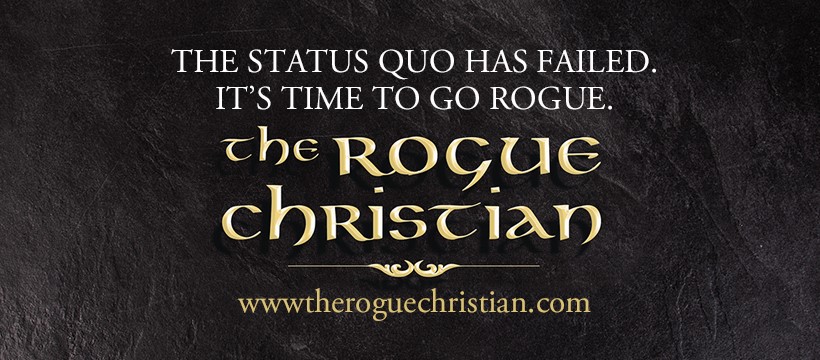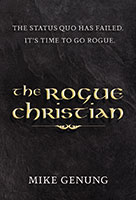Jonathan Haidt is a social psychologist who studies human emotion, morality, and politics. In a recent article on the history of social media and how it is affecting society, Haidt wrote:
“Social media users… have become more adept at putting on performances and managing their personal brand—activities that might impress others but that do not deepen friendships in the way that a private phone conversation will. Once social media platforms had trained users to spend more time performing and less time connecting, the stage was set for a major transformation… This new game encouraged dishonesty and mob dynamics: users were guided not just by their true preferences but by their past experiences of reward and punishment, and their prediction of how others would react to each new action.”
In other words, we’re being trained to fake it and put on a show to get a cheap dopamine hit when someone likes or shares one of our posts.
It’s extremely rare to see someone post about their weaknesses, failures, sin, temptations, or battles with spiritual warfare in Socialmedialand. Most of the pictures on those platforms present everyone as smiling, happy; fostering the illusion that they’re gliding through life. Some have expressions that are so giddy that the pictures come off as being staged for like-bait.
Some Christians are masters of the illusion. Think about the posts and pictures you see from many ministries. Everything is wonderful, the fruit from their efforts is great with no mention of difficulties, trials, or spiritual warfare. It’s not that there’s anything wrong with these posts, but that they paint an incomplete picture. Amy Carmichael would have had a rough time publishing her book Things as They Are in the social media era as 90% of the stories in her book show devastating losses in the midst of ongoing, intense spiritual warfare.
We surely don’t see confessions from ministry leaders like this one from Paul:
“For we do not want you to be unaware, brothers, of the affliction we experienced in Asia. For we were so utterly burdened beyond our strength that we despaired of life itself. Indeed, we felt that we had received the sentence of death. But that was to make us rely not on ourselves but on God who raises the dead.”
2 Corinthians 1:8-10
Or this one:
“Are they servants of Christ? I am a better one—I am talking like a madman—with far greater labors, far more imprisonments, with countless beatings, and often near death. Five times I received at the hands of the Jews the forty lashes less one. Three times I was beaten with rods. Once I was stoned. Three times I was shipwrecked; a night and a day I was adrift at sea; on frequent journeys, in danger from rivers, danger from robbers, danger from my own people, danger from Gentiles, danger in the city, danger in the wilderness, danger at sea, danger from false brothers; in toil and hardship, through many a sleepless night, in hunger and thirst, often without food, in cold and exposure. And, apart from other things, there is the daily pressure on me of my anxiety for all the churches. Who is weak, and I am not weak? Who is made to fall, and I am not indignant? If I must boast, I will boast of the things that show my weakness.”
2 Corinthians 11:23-30
While most of us will never suffer as much as Paul did, doesn’t it ring false that any believer or ministry that is God-ordained and making an impact will not face opposition from the enemy and experience trials and hardships, just as Paul and others did throughout the Bible? Why are so many Christians covering up their struggles, especially when talking about these issues openly would help other believers cope with the trials in their own lives?
Haidt’s words about promoting our brand comes to mind. We act like we have it all together so people will think only the best about our ministries, or us. It’s an illusion that ministry and the Christian life are easy-breezy, with no spiritual warfare with an enemy who comes to steal, kill, and destroy, there are never moments when we get so exhausted and discouraged that we thought it was game over, nor that a significant investment of hours in prayer is required.
Sounds like Sunday morning at many churches.
I’m two and a half years into my journey with long covid. Physical and emotional crashes are frequent, as are the brain fog and difficulties breathing. When I red-line my energy level, the covid symptoms flare up. During the last two hours of our night of prayer in April, I started having a hard time breathing. Tonight we’re doing another night of prayer. I’ll gladly put it all out there again with a group of believers who are committed to the Lord and prayer.
Sometimes the enemy uses covid as a weapon. Once I become aware that I’m going through warfare and shut it down in prayer, the intensity of the symptoms can abate.
Two months ago, I posted the following on my personal Facebook page:
“On March 11, 1997, our second son, Scott, was born. 5 days later my wife and I held him as he died and passed into eternity. His cerebellum hadn’t been properly formed. In the seconds that Scott transitioned from this world there was a strong sense of God’s presence in the room. It would be a year before I could make it through the day without wanting to cry. I don’t know that I’ve ever experienced pain as deep as losing a child.”
In the world of illusions, few people cry or make mistakes; continually projecting strength and happiness is the rule. This doesn’t line up with Scripture.
“Now when Mary came to where Jesus was and saw him, she fell at his feet, saying to him, “Lord, if you had been here, my brother would not have died.” When Jesus saw her weeping, and the Jews who had come with her also weeping, he was deeply moved in his spirit and greatly troubled. And he said, “Where have you laid him?” They said to him, “Lord, come and see.” Jesus wept.”
John 11:32-35
Ever notice how pictures of ministry events are sometimes angled to show the crowd in a way that makes them look bigger? We like big numbers, the big church; if a ministry or church isn’t drawing a crowd it’s a flop. Last year, we held a From Porn to Grace conference at a church in Great Britain. Three people showed up. The three that came weren’t even from their church. Yet the time was a blessing for the three and they were glad we still put it on.
Vance Havner told a story where a pastor friend of his was asked how big his church was. His friend’s reply was “20 miles wide and an inch deep.” Have we bought into an illusion that if a church is big that’s it’s successful in God’s eyes?
I’ll take a small church of 20-40 committed believers who are devoted to God’s word, fellowship, and prayer over a megachurch any time.
I began the first chapter of my first book, The Road to Grace with the following:
“I realized I had a serious problem with sexual addiction in June of 1991. I was out of control, masturbating with pornography at least once a day. It didn’t matter if I was home alone when my wife, Michelle, was out of the house, or if I was in a hotel room when traveling for business.”
I weave the flaws and mistakes of my life throughout my books, articles, videos, radio shows, and when I speak. We look for guests for BG Radio who are willing to share their pain and suffering. Why? Because confessing our brokenness is one of the keys to being filled with the power of God and ministering to others by His strength and wisdom. Paul writes:
“On behalf of this man I will boast, but on my own behalf I will not boast, except of my weaknesses—though if I should wish to boast, I would not be a fool, for I would be speaking the truth; but I refrain from it, so that no one may think more of me than he sees in me or hears from me. So to keep me from becoming conceited because of the surpassing greatness of the revelations, a thorn was given me in the flesh, a messenger of Satan to harass me, to keep me from becoming conceited. Three times I pleaded with the Lord about this, that it should leave me. But he said to me, “My grace is sufficient for you, for my power is made perfect in weakness.” Therefore I will boast all the more gladly of my weaknesses, so that the power of Christ may rest upon me. For the sake of Christ, then, I am content with weaknesses, insults, hardships, persecutions, and calamities. For when I am weak, then I am strong. (Emphasis mine)
2 Corinthians 12:5-10
Did you catch that Paul begged God for the demonic torment to be lifted? “Sorry, Paul, we can’t post that on social media. What would people think about an Apostle who wasn’t a spiritual force?” They would miss that Paul transitioned from begging God for relief to bragging about his suffering and being content with it.
Facing long covid and the other difficulties and warfare we face with a ministry like this on a daily basis keeps me broken, on my knees, and trusting God for His strength, power, and guidance. He comes through with what I need, every time. The Christian life is a supernatural one of power for those who are willing to embrace their suffering, or as Paul put it, be content with their pain.
“But I will come to you soon, if the Lord wills, and I will find out not the talk of these arrogant people but their power. For the kingdom of God does not consist in talk but in power.”
1 Corinthians 4:19-20
Some years ago I was leading a men’s retreat. At one point I asked the men if they wanted the power of God in their lives. They started shouting and giving war cries as men do when they’re away from their wives. Then I said, “If you want the power of God resting on your life, boast about your weaknesses, sins, and failures” and quoted the verses above from 2 Corinthians 12.
Instant silence.
Why are we so afraid to set aside our masks, the illusion that we’ve got it all together, and share our weaknesses and failures? Fear, and pride. Fear of what people will think about us, how they will react, if they will reject us. We should use wisdom with what we share with others and to whom, especially if we’re in one of those twenty mile wide/one-inch deep churches that Vance Havner’s friend referred to.
Yet, keep in mind that Paul boasted of his weaknesses to everyone who would read Scripture over the centuries. He didn’t let the fear of those who would judge him stop him from making an impact by sharing his struggles. Sometimes we care way too much about the armchair critics and pharisees of this world, especially those who may come under conviction when we refuse to play the game of illusions and are intent about going all out for God.
“But sin, seizing an opportunity through the commandment, produced in me all kinds of covetousness.”
Romans 7:8
It is our pride that often keeps us from being transparent. We like to coddle it, pet it, shampoo it, take it for walks, show it off. After all, our reputation is at stake. What will people think if they know we struggle with temptation, sin, have failed, say the wrong things to family and friends, wrestle with doubt? Or cry? We need our joker-mask to play the role of the good Christian.
Our pride keeps us so self-absorbed that we’re blinded to the truth that sharing our weaknesses isn’t all about us, but about offering hope, encouragement, and healing to others while pointing them to God as the only source of life.
Sharing our weaknesses is about creating connections with others. I can’t relate to a Christian who has no faults or flaws. Put me in a room of transparent believers who aren’t playing church, are open with their struggles, and praying for each other, and I’m instantly bonded with them. Over the years I’ve heard my brothers and sisters say many times that a prayer meeting or support group was their true church. Read the book of Acts, and you’ll see that the church was never meant to be a performance-driven service where everyone watches the show and goes home, isolated and lonely.
In 2006 I was being interviewed on live radio during the prime drive time hour in Colorado Springs (4:00pm-5:00pm). As I told my story and my history with sexual sin, the host suddenly broke down crying. Right there, on live radio, he confessed to his struggles with masturbation. All I did was share my story. I didn’t preach a sermon or throw verses at him. God did the rest.
This is the power of sharing our brokenness. God shines through the cracks of our lives when we expose them to others. Some of the best preaching we do is when we share our weaknesses, crucifying self and giving God room to work in the process.
My friends, I encourage and challenge you to go rogue. Go against the grain of superficial Christianity and boast of your weaknesses, which will open new doors of blessing for you and others and give room for the power of God to shine through you.
Share your trials, mistakes, and warfare with others, including on your social media feeds. You don’t need to tell them your entire life story but give them enough to know that you’re a real person with flaws just like everyone else. Our common brokenness is a message that is often lost at a time when there is so much bickering among Christians about the non-essentials. Much of what the world sees today is the church covering up its sin, pretending it doesn’t have a problem with it, and Christians posting news articles, commenting on what they don’t like, and stirring up the pot.
I talk about spiritual warfare a lot and what I go through with it because it’s so rarely discussed effectively. This has opened doors for me to be able to help people who need help being equipped in this area. You can do the same.
Or, you can continue to foster the illusion… the lie… the cover-up, that the Christian life is easy-breezy and you have it all together. You can continue to post, act, and talk like so many in the church who prefer their joker masks to the risks and rewards that come with boasting of your weaknesses.
“And I, when I came to you, brothers, did not come proclaiming to you the testimony of God with lofty speech or wisdom. For I decided to know nothing among you except Jesus Christ and him crucified. And I was with you in weakness and in fear and much trembling, and my speech and my message were not in plausible words of wisdom, but in demonstration of the Spirit and of power, so that your faith might not rest in the wisdom of men but in the power of God.
1 Corinthians 2:1-5
Many read the Bible. Few live it.


